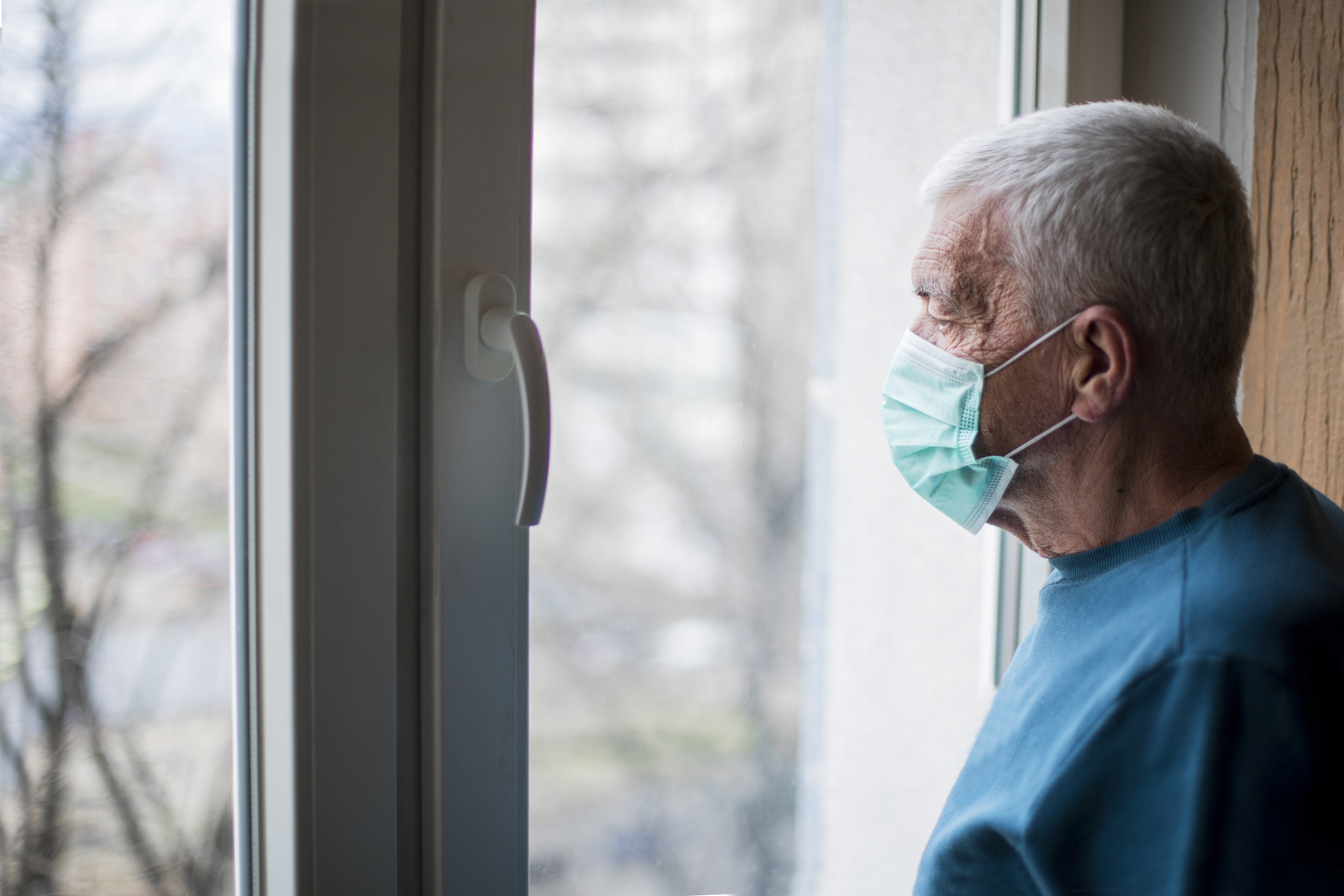By Kirsten Weir
It’s been a long and stressful pandemic year. Now that COVID-19 vaccines are becoming available, many people are wrestling with a new burst of emotions: From fear and skepticism to excitement and impatience.
“There is such a range of emotions around the vaccine rollout,” says Elizabeth Christofferson, PhD, a pediatric psychologist and clinical director of transplant psychology at Children’s Hospital of Colorado and an assistant professor at the University of Colorado School of Medicine. “Those emotions are normal and valid — and you can find ways to cope with them.”
Easing Concerns About the Vaccine
Guidelines from the U.S. Centers for Disease Control and Prevention recommend that patients over the age of 16 years (the Modern, Pfizer and Johnson & Johnson vaccines are not approved for children below 16 years of age) with high-risk medical conditions, including chronic kidney disease and transplant recipients, receive the COVID-19 vaccine in phase 1 of the vaccination process, after healthcare professionals.
But conflicting information has made some people wary about whether the vaccine is safe. For people with chronic kidney disease who are used to being vigilant about their health, that skepticism makes sense. Yet there’s good reason to be optimistic about the vaccine, says Sarah Swartz, MD, medical director of chronic dialysis at Texas Children’s Hospital and an associate professor at Baylor College of Medicine. “The data suggest that when people with chronic kidney disease or transplant recipients get infected with COVID-19, they’re more likely to have a severe infection. The vaccine offers a large chance for protection.”
So far, evidence shows that typical side effects of the vaccine are minimal, such as soreness at the injection site, fatigue, muscle aches, and sometimes a fever that typically lasts no more than a day or two, Swartz says. The vaccines approved so far have been shown to be very effective at preventing infection. And when vaccinated people do catch the virus, they appear to be less likely to experience severe symptoms, she adds. “We strongly urge our eligible patient population to proceed with vaccination.”
If you’re still feeling anxious, try to make sure you’re gathering information from trusted sources. Instead of relying on friends, family or social media for advice, talk to the medical experts. “If you have any questions or concerns, reach out to your medical team,” Swartz says. “We’re happy to answer questions and make sure your concerns are addressed so that you can make an informed decision with input from a source you trust.”
Managing Stress While You Wait for the Vaccine
While some people are worried about the vaccine, others are eager for the chance to receive it. But the vaccine rollout has gotten off to a slow start, and the process in some communities has been haphazard or confusing. Because of this, you may be feeling frustrated and impatient, or even angry and annoyed at people who have gotten the shot ahead of you.
After a challenging year, those feelings aren’t uncommon. But instead of getting stuck in a cycle of worry, frustration and annoyance, try to remain hopeful, suggests Cortney Taylor Zimmerman, PhD, a licensed psychologist in the renal service and psychology section at Texas Children’s Hospital and assistant professor at Baylor College of Medicine. “This is just another part of the waiting game, but there’s reason for hope.”
While you wait, you can take steps to manage stress and keep your spirits up.
- Keep up healthy habits. Eating well. Getting regular exercise. Limiting stressful media. Getting enough sleep. If your healthy habits have slipped a little during the pandemic, now’s the time to start getting back in the groove. It’s easier to face the ongoing challenges of COVID if you are rested, nourished and full of energy.
- Embrace relaxation techniques. Activities such as mindfulness meditation, deep breathing, yoga and tai chi are popular because they relax your body and your brain. Not sure where to start? Look for free apps or videos online that can guide you. Or start by just taking time to stop and breathe: Sit down, close your eyes and take 5 or 10 deep breaths in and out.
- Name your emotions. Sometimes, we aren’t sure why we’re feeling down. Figuring out exactly what you’re feeling is a first step toward dealing with it. “Are you anxious? Frustrated? Scared? Naming our feelings can be really powerful,” says Christofferson.
- Control what you can. So much of pandemic life is out of our control. But finding things you can control can help with anxiety. You can make decisions about where you go, who you interact with and what you need to feel safe. “Instead of thinking of isolating as being stuck in your house, think of it as choosing to social distance in order to take control of your health,” Zimmerman says. “Similarly, wearing a mask and getting a vaccine are choices you make to stay healthy.”
- Be prepared. Another way to take control is to do what you can to prepare for the vaccine. Talk to your doctor if you have any questions. Spend some time gathering information about how to make a vaccine appointment or sign up on a vaccine waiting list. You can’t make the vaccine become available any sooner, but you can do what you can to prepare.
- Distract yourself. Once you’ve done all you can to take control, try to distract yourself from the worry of waiting. Take a break from reading the news. Stop refreshing your social media feed to find out who is getting vaccinated. Instead, focus on other goals, hobbies and healthy habits.
- Imagine the future. Some people find calm in imagining what they’ll do when the pandemic is over — even if you aren’t quite sure when those plans will happen. Think about trips you might take or meals you can share with family. “Thinking about those future goals can provide a huge boost in wellbeing,” Zimmerman says.
- Revisit the past. Acknowledge how you feel about missing major events over the past year, such as family reunions, weddings or even going back to school. But instead of dwelling on what you’ve missed, draw on those experiences to remind yourself of how resilient you are. “Think about how you overcame those circumstances and what coping strategies helped you get through them,” Zimmerman says. “Think about all the strengths you have to draw on, and how you can apply them now.” You might have to make some modifications, like playing online games with friends instead of gathering in person. “You have to be thoughtful about how to modify things, but you still have access to those supports,” she adds.
Help for Anxiety and Depression
Unfortunately, getting the vaccine doesn’t mean life will instantly go back to “normal.” The approved vaccines offer a great deal of protection, but they aren’t 100% effective. We also don’t know how long effectiveness will last or if the vaccine’s protection will last as long in transplanted patients who are immunocompromised. And, experts still aren’t sure whether a person who has been vaccinated can spread the virus to others.
“Even after the vaccine, you’ll want to wear a mask and keep your distance, and set limits on what activities you feel safe doing,” says Christofferson.
This may sound disappointing, having to be careful even after getting the vaccine. But you’ve made it this far, and the pandemic won’t last forever. By focusing on healthy coping strategies, you can get over each remaining hurdle as it comes.
And you don’t have to get there all by yourself. “If it feels like anxiety, depression or stress is interfering with your daily life, or you just feel you need more support, it’s important to seek help from a mental health professional,” says Christofferson. The social worker or psychology team at your clinic or hospital should be able to help you connect with a therapist or counselor. You can also ask your doctor for resources.
“This is the time to use all of our stress management strategies,” Christofferson adds. “We can’t let our guard down yet, but there is light at the end of the tunnel.”
Resources
Vaccinate with Confidence from the Centers for Disease Control and Prevention
Coping with the Diagnosis of a Chronic Illness from the American Psychological Association
This content was developed jointly by the American Psychological Association (APA) as part of a partnership with Dialysis Patient Citizens to educate dialysis patients and their families on the psychological and emotional aspects of managing kidney disease.




